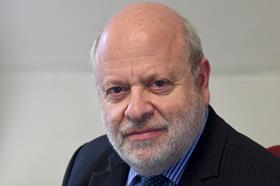The Day of the Endangered Lawyer falls this week on Wednesday 24 January 2024. It will be its 15th anniversary. It is an initiative to draw attention to the plight of lawyers in a particular country each year. The spotlight has fallen on a variety of places in previous years – such as the Philippines, China, and Egypt. This year the focus is on Iran.

I don’t often write about endangered lawyers, since I have nothing to add to what stellar human rights organisations already say. What happens to lawyers in a wide range of countries is unspeakable – murder, imprisonment, harassment, disbarment – all for doing what we would consider our daily work. It is a subject which should be written about every day, yet there is nothing new to contribute beyond the dismal task of writing down more names of brave colleagues who are abused (and worse) for carrying out their professional duties – every day more names. If I was one of those unlucky souls, I would be comforted by knowing that my name and plight were being published somewhere to alert the world to the injustice.
The official website of the Day of the Endangered Lawyer has an extensive report on conditions for lawyers in Iran.
It begins with the history of the Iranian revolution, the control of the bar after the revolution by various powers, and the current restrictions on becoming a lawyer in Iran:
‘ .. all candidates who have passed the bar entrance exam shall send their application file to the bar association. Afterwards the bar association shall send this file to the Ministry of Intelligence of Iran for a background check. If a candidate has allegedly done any action against the regime, including criticizing the government or the Supreme Leader, the application of the candidate will be rejected.’
Other conditions for becoming a lawyer include ‘actual belief and commitment to Islamic laws and principles’, ‘belief and loyalty to the State of the Islamic Republic and the Office of the Supreme Leader’, ‘not having a record of membership and activism with outlawed groups opposed to the Islamic Republic’ and ‘no connections to the Pahlavi regime.’
As the report points out, Principle 10 of the United Nations Basic Principles on the Role of Lawyers says that there should be no discrimination on entry into the profession for, among other things, ‘religion, political or other opinion’.
There then follows a long list of named Iranian lawyers, and a description of what has happened to them. For professional work like defending protestors against the regime (for instance, during the mass protests following the death of Mahsa Amini while under arrest ), they are charged with a variety of offences which we would not recognise in such circumstances - propaganda against the regime, acting against national security, agitation of public opinion by spreading false information against the regime, and encouraging corruption and prostitution. On further analysis of the charges, the principle of legality is in many cases ignored and lawyers face criminal proceedings for acts that are not defined in the Penal Code.
Many international bars are planning events around the day.
For instance, the Law Society, in conjunction with the International Bar Association Human Rights Institute (IBAHRI) and others, is hosting an in-person and online discussion at the Law Society on the evening of Wednesday 24 January with two UN Special Rapporteurs as speakers. Registration is here.
The Council of Bars and Law Societies advertised a press conference to take place earlier in the week highlighting the plight of Iranian lawyers, with the United Nations Special Rapporteur on the Independence of Judges and Lawyers as the keynote speaker, and a Law Society representative on the panel. There is also a demonstration outside the Iranian Embassy in Brussels on 24 January.
It is impossible to ignore that Iran is one of the countries with which the West is currently engaged in strife. Other countries against which the West is struggling in different ways also treat their lawyers badly – for instance, Russia and China. The CCBE gave their human rights award last year to three Chinese lawyers. Yet current political events should not be the cause for our concern for our fellow lawyers. Rather we should be focused only on adherence by the countries concerned to accepted international norms, such as those published by the UN.
And so, to add what I can, here are some, just a very few, of the recent names of lawyers who have been wrongly affected by state actions, in the long history of injustice against lawyers: from Iran, Amirsalar Davoudi, Sina Yousefi, Ghasem Bodi Bonab, Mohsen Borhani and of course Nasrin Sotoudeh; from China, Hang Tung Chow, Xu Zhiyong and Ding Jiaxi; from Russia, Mikhail Benyash, Vadim Kobzev, Alexey Liptser and Igor Sergunin.
Jonathan Goldsmith is Law Society Council member for EU & International, chair of the Law Society’s Policy & Regulatory Affairs Committee and a member of its board. All views expressed are personal and are not made in his capacity as a Law Society Council member, nor on behalf of the Law Society































1 Reader's comment